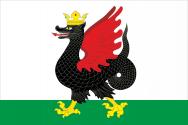Description of the war in the story The Fate of Man. Depiction of the folk character of war in M. Sholokhov’s story “The Fate of Man”
“DURING IMPORTANT AGES OF LIFE, SOMETIMES A SPARK OF HEROIC FLASHES IN THE MOST ORDINARY PERSON”
(based on the story “The Fate of Man” by M. Sholokhov)
At the end of 1956, M. A. Sholokhov published his story “The Fate of a Man.” This is a story about a common man in a big war. The Russian man went through all the horrors of the war imposed on him and, at the cost of enormous, irreparable personal losses and tragic deprivations, defended his Motherland, asserting the great right to life, freedom and independence of his Motherland.
The story raises the problem of the psychology of the Russian soldier - a man who embodied the typical traits national character. The reader is presented with a life story an ordinary person. A modest worker, the father of the family lived and was happy in his own way. And suddenly there was a war... he went to the front to defend his homeland. Like thousands of others just like him. The war tore him away from his home, from his family, from work. And everything seemed to go downhill. All the hardships of the wartime fell upon the soldier; life suddenly began to beat and whip him with all its might. Why was this man punished like this? Sokolov's suffering is not an episode connected with the fate of one person. This is the fate of Russia. This is the “Fate of Man.”
The feat of man appears in Sholokhov’s story, mainly, not on the battlefield or on the labor front, but in conditions of fascist captivity, behind the barbed wire of a concentration camp. In the spiritual combat with fascism, the character of Andrei Sokolov and his courage are revealed. Far from the front, the soldier survived all the hardships of the war, the inhumane abuses of fascist captivity. And more than once he found courage in himself and, in spite of everything, remained human to the end. But not only in a clash with the enemy does Sholokhov see the manifestation of humanity in human nature. An equally serious test for the hero is his loss. The terrible grief of a soldier, deprived of loved ones and shelter, his loneliness. After all, Andrei Sokolov, who emerged from the war as a winner, returning peace and tranquility to people, himself lost everything he had in life: family, love, happiness... The harsh fate did not even leave the soldier a refuge on earth. In the place where the house built with his hands stood, there was a dark crater left by a German air bomb. He says to his random interlocutor: “Sometimes you don’t sleep at night, you look into the darkness with empty eyes and think: “Why have you, life, maimed me so much? I have no answer either in the dark or in the clear sun...” Andrei Sokolov, after everything that he has experienced, it would seem that he could become embittered, become bitter, but he does not complain about the world, does not withdraw into his grief, but goes to people. Left alone in this world, this man gave all the warmth that remained in his heart to the orphan Vanyusha, replacing his father. He adopted Vanya precisely because he began to gradually return to life.
With all the logic of his story, M. A. Sholokhov proved that the hero is in no way broken and cannot be broken by life. Having gone through the most difficult trials, he retained the main thing - his human dignity, love of life, humanity, which help him live and work. Andrei Sokolov naturally follows the “golden rule” of morality: do not hurt others. He is kind and trusting of people. Moral ties with people could not be broken by any ups and downs of life.
And the writer draws our attention to another interesting character trait of the hero. Sokolov, first of all, thinks about his own responsibilities to people. When Sholokhov was once asked whether “The Fate of Man” could be considered a polemic with E. Hemingway’s story “The Old Man and the Sea,” he answered in the affirmative. But the polemics of the story are much broader. Here is a polemic with everyone who portrays “ little man“, deprived of great life aspirations and human joys, doomed, not understanding the meaning of the events in which he participates or from which he flees. Sholokhov's hero knows his place in life and builds it with his own hands. The life-affirming art, nationality and great humanism of Sholokhov were revealed in this story with unfading power. The moral strength of the protagonist and the highest skill of the artist, who managed to depict with amazing power in a short story tragic story the lives of an ordinary person, conquered the whole world.
March 02 2011
Writers have always thought about humanism. In the 20th century, a humanistic theme was also heard in works dedicated to the events of the Great Patriotic War.
War is. It brings destruction and sacrifice, separation and death. Millions of people were orphaned at that time. War is inhumane: it kills people. He is required to be cruel and evil, to forget about moral laws and God's commandments.
The answer to this question can be found in M. Sholokhov’s story “The Fate of a Man.” The main character of the work is the driver Andrei Sokolov. It is in his actions that the humanistic theme is reflected.
The ordinary soldier had to endure a lot. He was wounded three times, captured (“whoever hasn’t experienced this on his own skin will not immediately get into his soul for him to understand in a human way what this thing means”), all the horrors of the concentration camps (“They beat him easily for the purpose of so that one day he might kill him to death, so that he would choke on his last blood and die from beatings.”). Andrei’s family died: “A heavy bomb hit my little house. Irina and her daughters were just at home... no trace of them was found.” The son, “the last joy and the last hope,” is killed by a German sniper “exactly on the ninth of May, on Victory Day. “From such a blow, Andrei’s vision darkened, his heart clenched into a ball and would not unclench.”
These severe troubles and hardships became a real test for Sholokhov's hero - a test of humanity. His eyes, which, as we know, are the mirror of the soul, although “as if they were sprinkled with ashes,” still there is no vindictive misanthropy, no poisonous skepticism towards life, no cynical indifference in them. Fate “distorted” Andrei, but could not break him, kill him living soul.
With his story, Sholokhov refutes the opinion of those who believe that perseverance and courage do not get along with tenderness, responsiveness, affection, and kindness. On the contrary, he believes that only strong and unyielding people are capable of showing humanity, as if this is a “sign” of such a character.
Sholokhov deliberately does not show details of front-line life and camp ordeals, wanting to concentrate on depicting the “culmination” moments, when the character of the hero and his humanity are manifested most strongly and vividly.
Thus, Andrei Sokolov withstands the “duel” with the Lagerfuhrer with honor. The hero manages, even if for a moment, to awaken something human in the Nazis: Müller, in recognition of his soldierly valor (“So that I, a Russian soldier, would drink German weapons for the victory?!”) saves Andrei and even presents “a small loaf bread and a piece of bacon." But the hero understood: the enemy is capable of any treachery and cruelty, and at that moment, when a shot in the back was about to thunder, it flashed in his head: “He’ll shine between my shoulder blades now and I won’t bring this grub to the guys.” In a moment of mortal danger, the hero thinks not about his life, but about the fate of his comrades. Müller’s gift was “divided without offense” (“everyone equally”), although “everyone got a piece of bread the size of a matchbox... well, lard... - just to anoint your lips.” And Sholokhov’s hero commits such a generous act without hesitation. For him, this is not even the only correct, but the only possible solution.
War is inhumane, so situations arise that require solutions on the verge of cruelty and humanism, on the verge of what is permitted and what is not permitted... under normal conditions. Andrei Sokolov was subjected to such a test of moral principles, finding himself forced to deal with Kryzhnev in order to save the platoon commander - “a snub-nosed boy.” Is killing a person humane? For Sholokhov, in the current circumstances, the strangulation of Kryzhnev, a traitor guided by the principle “your shirt is closer to your body,” has “humanistic legitimacy.” The writer is convinced that spiritual responsiveness and tenderness, the ability for active (namely active) love, shown by Andrei Sokolov when he encounters kind, fair people who need his protection - this is moral basis intransigence, contempt, courageous firmness (the ability to step over moral law- kill) in relation to cruelty and betrayal, lies and hypocrisy, and apathy and cowardice.
That is why, trying to convince the reader of the humanity of Andrei’s act, Sholokhov creates “Comrade Kryzhnev” as exclusively negative, trying to arouse contempt and hatred for the “big-faced”, “fat gelding” traitor. And after the murder, Andrei “felt unwell”, “terribly wanted to wash his hands,” but only because it seemed to him as if “he was strangling some kind of creeping thing,” and not a person.
But the hero also accomplishes a truly humanistic and civic feat. He adopts a “little ragamuffin,” an orphan baby: “It’s impossible for us to disappear separately.” “Twisted”, “crippled by life” Andrei Sokolov does not try to motivate his decision to adopt Vanyushka philosophically; for him this step is not connected with the problem of moral duty. For the hero of the story, “protecting the child” is a natural manifestation of the soul, the desire for the boy’s eyes to remain clear, “like the sky,” and for his fragile soul to remain undisturbed.
Andrey gives all his unspent love and care to his little son: “Go, dear, play near the water... Just make sure you don’t get your feet wet!” With what tenderness he looks at his blue “little eyes.” And “the heart goes away,” and “the soul becomes joyful, which cannot be said in words!”
Having adopted a boy who no one needs, but in whose soul there was still hope for a “good share,” Sokolov himself becomes the personification of the indestructible humanity of the world. Thus, in the story “The Fate of Man” he showed that despite all the hardships of war and personal losses, people have not become hardened in heart, they are capable of doing good, they strive for happiness and love.
At the beginning of the story, the author calmly talks about the signs of the first post-war spring; he seems to be preparing us for a meeting with the main character, Andrei Sokolov, whose eyes “as if sprinkled with ashes, filled with inescapable mortal melancholy.” Sholokhov’s hero recalls the past with restraint, wearily; before confession, he “hunched over” and placed his large, dark hands on his knees. All this makes us feel how tragic the fate of this man is.
The life of an ordinary person, the Russian soldier Andrei Sokolov, passes before us. Since childhood, he learned how much a pound is worth and fought in civilian life. A modest worker, the father of a family, he was happy in his own way. The war ruined this man’s life, tore him away from home, from his family. Andrei Sokolov goes to the front. From the beginning of the war, in its very first months, he was wounded twice and shell-shocked. But the worst thing awaited the hero ahead - he falls into fascist captivity.
The hero had to experience inhuman torment, hardship, and torment. For two years, Andrei Sokolov steadfastly endured the horrors of fascist captivity. He tries to escape, but is unsuccessful; he deals with a coward, a traitor who is ready to hand over the commander to save his own skin. With great clarity the feeling self-esteem, enormous fortitude and endurance were revealed in Sokolov’s moral duel with the concentration camp commandant. An exhausted, exhausted, exhausted prisoner is ready to face death with such courage and endurance that it amazes even a fascist who has lost his human appearance.
Andrei still manages to escape and becomes a soldier again. Death looked him in the eye more than once, but he remained human to the end. And yet the most serious trials befell the hero when he returned home. Having emerged from the war as a winner, Andrei Sokolov lost everything he had in life. In the place where the house built by his hands stood, there was a dark crater left by a German air bomb... All members of his family were killed. He says to his random interlocutor: “Sometimes you don’t sleep at night, you look into the darkness with empty eyes and think: “Why have you, life, crippled me like that?” I have no answer either in the dark or in the clear sun..."
After everything that this man had experienced, it would seem that he should have become embittered and bitter. However, life could not break Andrei Sokolov; it wounded, but did not kill the living soul in him. The hero gives all the warmth of his soul to his adopted orphan Vanyusha, a boy with “eyes as bright as the sky.” And the fact that he adopts Vanya confirms the moral strength of Andrei Sokolov, who managed to start life over again after so many losses. This person overcomes grief and continues to live. “And I would like to think,” writes Sholokhov, “that this Russian man, a man of unbending will, will endure, and near his father’s shoulder will grow one who, having matured, will be able to withstand everything, overcome everything on his way, if his Motherland calls him to this.” .
Mikhail Sholokhov's story “The Fate of Man” is imbued with a deep, bright faith in man. Its title is symbolic: this is not just the fate of the soldier Andrei Sokolov, but about the fate of the Russian man, a simple soldier who bore all the hardships of the war. The writer shows at what enormous cost the victory in the Great Patriotic War was won and who was the real hero of this war. The image of Andrei Sokolov instills in us deep faith in the moral strength of the Russian person.
Need a cheat sheet? Then save - "The theme of war and humanism in Sholokhov’s story “The Fate of Man.” Literary essays!>Essays on the work The Fate of Man
Man at War
Much has been written about the Great Patriotic War works of art, including large-scale and epic ones. It would seem that against their background, M. A. Sholokhov’s short story “The Fate of a Man” should have gotten lost. But not only did it not get lost, but it became one of the most popular and beloved by readers. This story is still studied in school. Such a long age of the work indicates that it was written with talent and is distinguished by artistic expressiveness.
This story tells the story of the fate of an ordinary Soviet man named Andrei Sokolov, who went through civil war, industrialization, the Great Patriotic War, a concentration camp and other trials, but managed to remain a man with a capital letter. He did not become a traitor, did not break in the face of danger, and showed all his willpower and courage in captivity of the enemy. An illustrative episode is the incident in the camp when he had to stand face to face with the Lagerführer. Then Andrei was just a hair's breadth away from death. One wrong move or step, he would have been shot in the yard. However, seeing him as a strong and worthy opponent, the Lagerführer simply let him go, rewarding him with a loaf of bread and a piece of lard.
Another incident, testifying to the hero’s heightened sense of justice and moral strength, occurred in the church where the prisoners spent the night. Having learned that there was a traitor among them who was trying to betray one platoon commander to the Nazis as a communist, Sokolov strangled him with his own hands. Killing Kryzhnev, he felt no pity, nothing but disgust. Thus, he saved a platoon leader unknown to him and punished the traitor. Strength of character helped him escape from Nazi Germany. This happened when he got a job as a driver for a German major. Somehow along the way he stunned him, took the pistol and managed to leave the country. Once on his native side, he kissed the ground for a long time, could not breathe in it.
The war more than once took away all that was most precious from Andrei. During Civil War he lost his parents and sister, who died of hunger. He himself was saved only by leaving for Kuban. Subsequently he managed to create new family. Andrei had a beautiful wife and three children, but the war took them away from him too. A lot of sorrows and trials befell this man, but he was able to find the strength to live on. The key incentive for him was little Vanyusha, an orphaned person like him. The war took away Vanya’s father and mother, and Andrei picked him up and adopted him. This also shows the inner strength of the protagonist. Having gone through a series of such difficult trials, he did not lose heart, did not break, and did not become bitter. It was this personal victory over the war.
The immortal work of M. A. Sholokhov “The Fate of Man” is a real ode to the common people, whose life was completely broken by the war.
Features of the story composition
The main character here is represented not by a legendary heroic figure, but a simple person, one of the millions of people touched by the tragedy of war.
The fate of man in wartime
Andrei Sokolov was a simple rural worker who, like everyone else, worked on a collective farm, had a family and lived an ordinary measured life. He boldly goes to defend his fatherland from the fascist invaders, thus leaving his children and wife to the mercy of fate.
At the front, the main character begins those terrible trials that turned his life upside down. Andrei learns that his wife, daughter and youngest son were killed in an air attack. He takes this loss very hard, as he feels his own guilt for what happened to his family.
However, Andrei Sokolov has something to live for; he still has his eldest son, who during the war was able to achieve significant success in military affairs, and was his father’s only support. IN last days During the war, fate prepared the last crushing blow for Sokolov; his son is killed by his opponents.
At the end of the war, main character, is morally broken and does not know how to live further: he lost his loved ones, his home was destroyed. Andrey gets a job as a driver in a neighboring village and gradually begins to drink.
As you know, fate, which pushes a person into the abyss, always leaves him a small straw through which, if desired, he can get out of it. Andrei's salvation was a meeting with a little orphan boy whose parents died at the front.
Vanechka had never seen his father and reached out to Andrei, because he longed for the love and attention that the main character showed to him. The dramatic peak in the story is Andrei’s decision to lie to Vanechka that he is his own father.
An unfortunate child, who has never known love, affection or kindness towards himself in his life, throws himself in tears on Andrei Sokolov’s neck and begins to say that he remembered him. So, in essence, two destitute orphans begin their life journey together. They found salvation in each other. Each of them gained a meaning in life.
The moral “core” of Andrei Sokolov’s character
Andrei Sokolov had a real inner core, high ideals of spirituality, steadfastness and patriotism. In one of the episodes of the story, the author tells us how, exhausted by hunger and labor in a concentration camp, Andrei was still able to maintain his human dignity: for a long time he refused the food that the Nazis offered him before they threatened to kill him.
The strength of his character aroused respect even among the German murderers, who ultimately had mercy on him. The bread and lard that they gave to the main character as a reward for his pride, Andrei Sokolov divided among all his starving cellmates.
Mikhail Sholokhov's story “The Fate of Man” is dedicated to the topic Patriotic War, in particular the fate of a person who survived this difficult time. The composition of the work fulfills a certain setting: the author makes a short introduction, talking about how he met his hero, how they got into conversation, and ends with a description of his impressions of what he heard. Thus, each reader seems to personally listen to the narrator - Andrei Sokolov. Already from the first lines it becomes clear what a difficult fate this man has, since the writer makes the remark: “Have you ever seen eyes that seemed sprinkled with ashes, filled with such inexpressible melancholy that it’s hard to look into them?” The main character, at first glance, is a common person with a simple fate that millions of people had - he fought in the Red Army during the Civil War, worked for the rich to help his family not die of hunger, but death still took all his relatives. Then he worked in an artel, at a factory, trained as a mechanic, over time came to admire cars, and became a driver. AND family life, like many others, he married beautiful girl Irina (orphan), children were born. Andrei had three children: Nastunya, Olechka and son Anatoly. He was especially proud of his son, as he was persistent in learning and capable of mathematics. And it’s not without reason that they say that happy people are all the same, but everyone has their own grief. It came to Andrei's house with a declaration of war. During the war, Sokolov had to experience grief “up to the nostrils and above”, and endure incredible trials on the verge of life and death. During the battle he was seriously wounded, he was captured, he tried to escape several times, worked hard in a quarry, and escaped, taking a German engineer with him. Hope for better things flashed, and just as suddenly faded away, as two terrible news arrived: a wife and girls died from a bomb explosion, and on the last day of the war, their son died. Sokolov survived these terrible trials that fate sent him. He had life wisdom and courage, which were based on human dignity, which can neither be destroyed nor tamed. Even when he was a moment away from death, he still remained worthy of the high title of a man, and did not yield to his conscience. Even the German officer Muller recognized this: “That's it, Sokolov, you are a real Russian soldier. You are a brave soldier. I am also a soldier and respect worthy enemies. I won't shoot at you." This was a victory for the principles of life, since the war burned his fate and could not burn his soul. For his enemies, Andrei was terrible and indestructible, and he appears completely different next to the little orphan Vanya, whom he met after the war. Sokolov was struck by the boy’s fate, since he himself had so much pain in his heart. Andrei decided to shelter this child, who did not even remember his own father, except for his leather coat. He becomes Vanya's own father - a caring, loving one, which he could no longer be for his children. An ordinary person - this is probably said too simplistically about the hero of the work; it would be more accurate to indicate - a full-fledged person, for whom life is internal harmony, which is based on truthful, pure and bright life principles. Sokolov never stooped to opportunism, this was contrary to his nature, however, as a self-sufficient person, he had a sensitive and kind heart, and this did not add to the leniency, since he went through all the horrors of the war. But even after what he experienced, you won’t hear any complaints from him, only “... the heart is no longer in the chest, but in a gourd, and it becomes difficult to breathe.” Mikhail Sholokhov solved the problem of thousands of people - young and old - who became orphans after the war, having lost their loved ones. the main idea the work is formed during the acquaintance with the main character - people should help each other in any trouble that happens in life path, this is precisely the real meaning of life.








